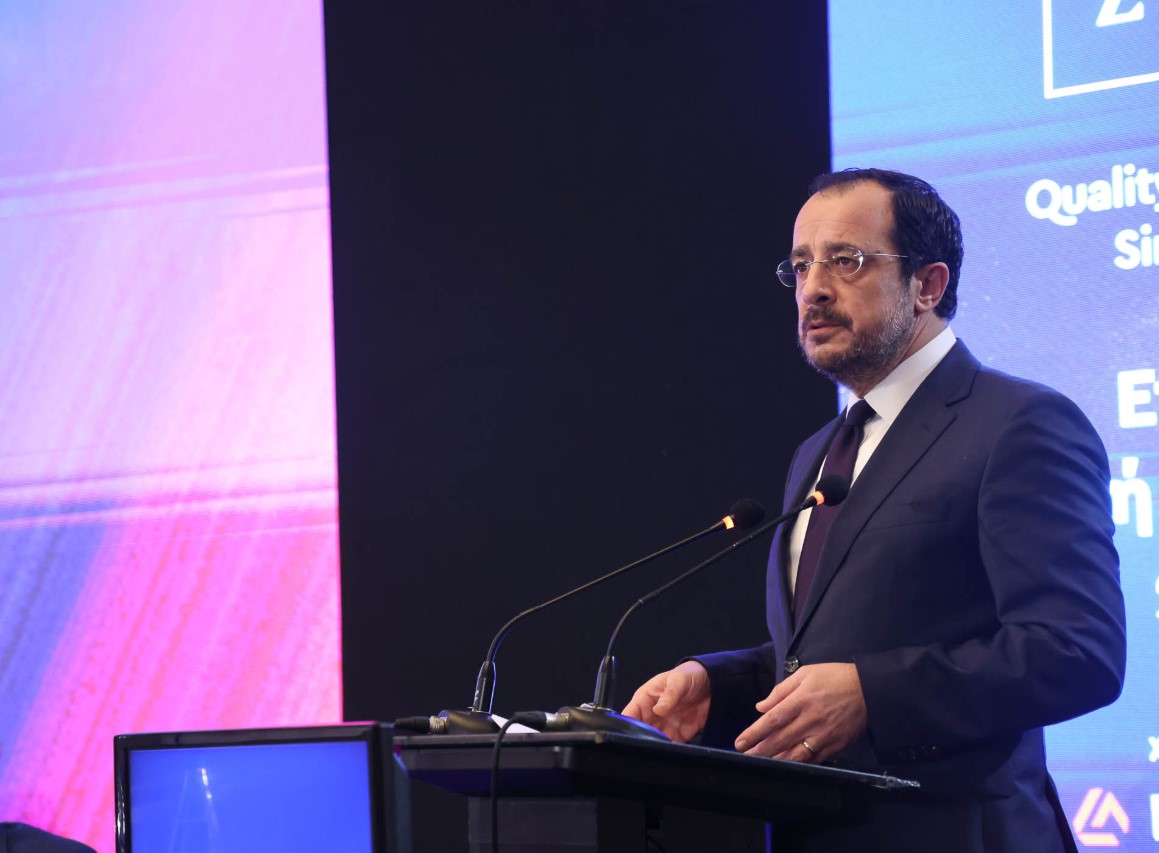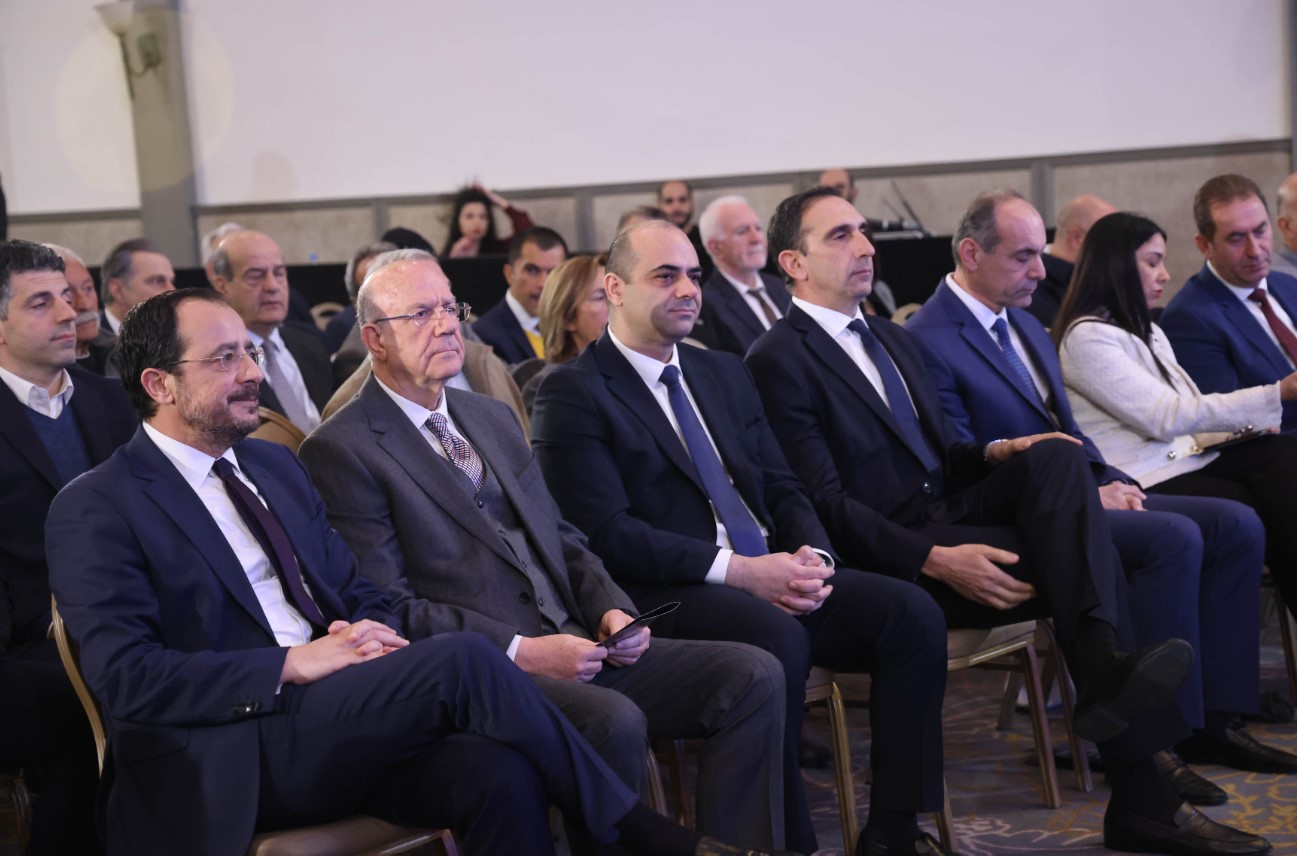4 million visitors, €3 billion revenue in 2024
Cypriot tourism has recovered from the challenges of the previous three years, including the pandemic and the loss of the Russian market, according to president Nikos Christodoulides.
Speaking during the annual general assembly of the Association of Cyprus Tourist Enterprises (Stek), the president explained that the government’s priority will now shift to targeted support for tourism within a sustainable and socially responsible framework, in order to improve competitiveness.
In this context, he said that addressing climate change is key, as visitor satisfaction depends on national efforts.
“In the last three years, our country’s tourism was significantly impacted by external factors,” Christodoulides said. “At first, it was the Covid-19 pandemic, which completely paralysed the tourism sector for a whole year, and later, it was the loss of the second-largest market for the tourism sector, Russia.”
Taking these factors into account, he said, the “main goal was to return to the high performance levels of the past“.
The president pointed out that this year’s record results, as well as the positive signs for 2025 indicate “that our country’s tourism is expected to maintain these high levels”.
He added that this “allows us to conclude that our tourism industry has regained lost ground and is moving towards the future with steady progress, confidence, and optimism”.
“Through this line of thinking, we as a government believe that 2024 marked the end of a cycle for tourism with the recovery of lost ground,” the president stated.
“Our responsibility from here on, by listening to the messages of the times, international trends, and local conditions, is the practical, targeted support of the sector so that it continues its developmental path,” Christodoulides said.
He explained that the above must be implemented while “operating in a new framework, in a sustainable and socially responsible environment, while simultaneously enhancing the high competitiveness of the sector.”

In terms of climate change, he said that “the satisfaction level of visitors in different countries seems to depend on the measures each country takes to face this significant challenge“.
“It is therefore obvious that if we want to look at the future of tourism in our country with optimism, we as the state and government must responsibly manage the issue of climate change,” he added.
He reiterated that managing climate change “is inextricably linked to the common goal of enhancing the resilience and competitiveness of our tourism product“, before urging all tourism sector stakeholders be “aligned and share the same aspirations and visions”.
At the top of his address, the president said that “tourism is, undoubtedly, one of the most important pillars of our country’s economy, and within this context, it is approached by the government as a high-priority sector”.
He mentioned that Cyprus achieved record tourist arrivals and revenue in 2024, surpassing four million visitors and €3 billion respectively.
Moreover, he stated that over the past two years, arrivals and revenue grew by over 25 per cent, highlighting the sector’s resilience.
He stressed that the private sector’s efforts remain crucial in this effort, while sustainable development and strategic policies will drive continued growth.
Christodoulides also emphasised the need for continuous investment in infrastructure, green and digital transition, and tourism education to keep Cyprus competitive.
“Supportive infrastructure must continuously improve,” he said, adding that fiscal reform plans will prioritise sustainability.
He also touched on labour issues, tourism promotion, and public infrastructure upgrades as “key government priorities” since taking office.
“Over these two years of governance, we have made significant decisions that I am pleased to mention have already worked beneficially for our country’s tourism industry,” he said.
“The recent, for example, agreement between the Transport Ministry and Hermes Airports for the expansion and upgrading of our country’s airports is undoubtedly a decision in the direction I mentioned earlier, benefiting tourism,” he added.
He said that this decision was “achieved after serious negotiations with the sole focus being the public interest”.
The president also praised Stek for its contribution, labelling it “decisive”. He used the same word to describe the renewal of the collective agreement in the hotel industry, which has runs until the end of 2027.
This, the president says, “ensures conditions of normalcy and stability for achieving the developmental prospects of full employment and for responding to staffing needs in the labour market”.

He added that the government has “significantly expedited the process of reviewing applications for the employment of staff from third countries when there is a shortage in the domestic market”.
Moreover, he mentioned the agreement signed with Egypt, “with the aim of sourcing labour from the neighbouring country where there are needs”.
“On the same issue, I am confident that the updated framework for the employment of foreign workers will adequately meet the various challenges related to staffing in the tourism industry,” he stated.
He also said that “the results of utilising technology for submitting and processing related requests to the Labour Ministry will be clearly felt by all”.
The president also pointed out that the Labour Ministry new training programme for winter employees is a “key step in extending the tourist season”.
Christodoulides noted progress in areas like Paphos, Limassol, and Famagusta, with the goal of gradually making Cyprus a year-round destination.
Furthermore, he said that a significant development was the decision to increase the budget of the Deputy Ministry of Tourism for enhanced international promotion.
He siad that the launch of a campaign aimed at restoring Cyprus’ reputation and promoting it as a business and investment hub is part of this effort.
“The goal is more robust promotion of our country abroad,” Christodoulides said.
New policies include upgrading hotels in remote areas, supporting catering establishments, and reviving mountainous regions.
In addition, upcoming initiatives include the Paphos Marina tender and creating thematic parks to boost the tourism product, alongside targeted destination upgrades in collaboration with local stakeholders.


